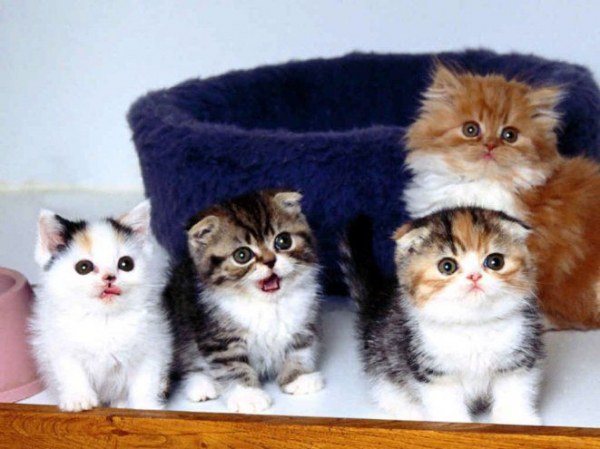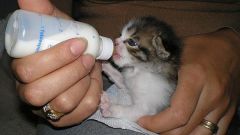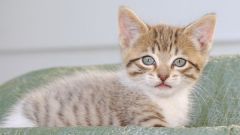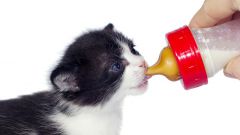Caring for kittens
You need to prepare for keeping kittens a few important things: bowls for food and water, litter box, toys, bedding for sleep. You will need: shampoo, fleas, scratching post, a brush for combing Pets. No matter what breed of kittens, they need to from early childhood, accustomed to getting up, bathing, cleaning ears and teeth.
If you have acquired a kitten in the store or in the market, then come home to let the pet to settle in. He gradually learns home. Take the kitten in his hands gently, no sudden movements, not to harm. Caring for kittens claws should begin from the first days of stay of animals in the house. Teach your pet to sharpen its claws in a very specific place. When the kitten turns two months, it is recommended to trim his nails, this should be done very carefully, so as not to damage the capillaries.
No less attention should be paid to the ears of kittens. Once a month they should be cleaned. For this you will need hydrogen peroxide or baby oil. Soak in one of the following means q-tip, gently slide the ear will remove all wax and dirt. Don't get wand deep into the ear, so as not to damage the eardrum. Teach your kittens to this procedure from the early days of finding you.
In the eyes in kittens can accumulate a slime, dirt. Purchase veterinary pharmacy or pet shop special drops for eye wash. In addition, every day should be standard care for eyes kittens. Wipe them with a cotton swab dipped in warm boiled water. The next important procedure that provides for the care of our smaller brethren is the care of teeth. First remove the plaque from the teeth and food debris with a cotton swab. This should be done at least once a week. When kittens grow up, can be used for the same purpose a special brush.
If the kittens are cat-mom, they don't need to bathe as it takes full care of the kids. If you bought a kitten or picked up on the street, you need to redeem it in warm water with special shampoo. The head of the pet is not namasivaya, water and shampoo should not get into the ears and eyes, just wipe the face of a kitten with a damp cloth. After this hygienic procedure to wrap the baby in a towel, dry in natural conditions. Periodically inspect the coat for signs of fleas, if necessary, use special drops, shampoos or collars against the biting insects. Be sure to consult your veterinarian about broad-spectrum Anthelmintics and vaccinations.
Feeding kittens
If the kittens are left after the birth without a mother cat, then you need to take the whole procedure of feeding into their own hands. Every two to three hours to feed babies need special cat milk substitutes, which are sold at the pet store (cow's milk will not work). Already from the fifth week you need to train the kittens to solid food. Start with canned goods, let's very slowly, mixing with a small amount of water. With the sixth week gradually reduce the amount of milk. At the eighth week, the kittens no longer need milk, so must be accustomed to a certain diet.
Special feed premium will be a good source of essential vitamins and minerals for growth and development of kittens. Because a cat is a predatory animal based food must enter meat diet. Preferably fish and meat subjected to heat treatment in order to avoid the risk of helminth infection. In the kittens diet should also include vegetables and cereals, yogurt or kefir, raw egg yolks mixed in milk.




